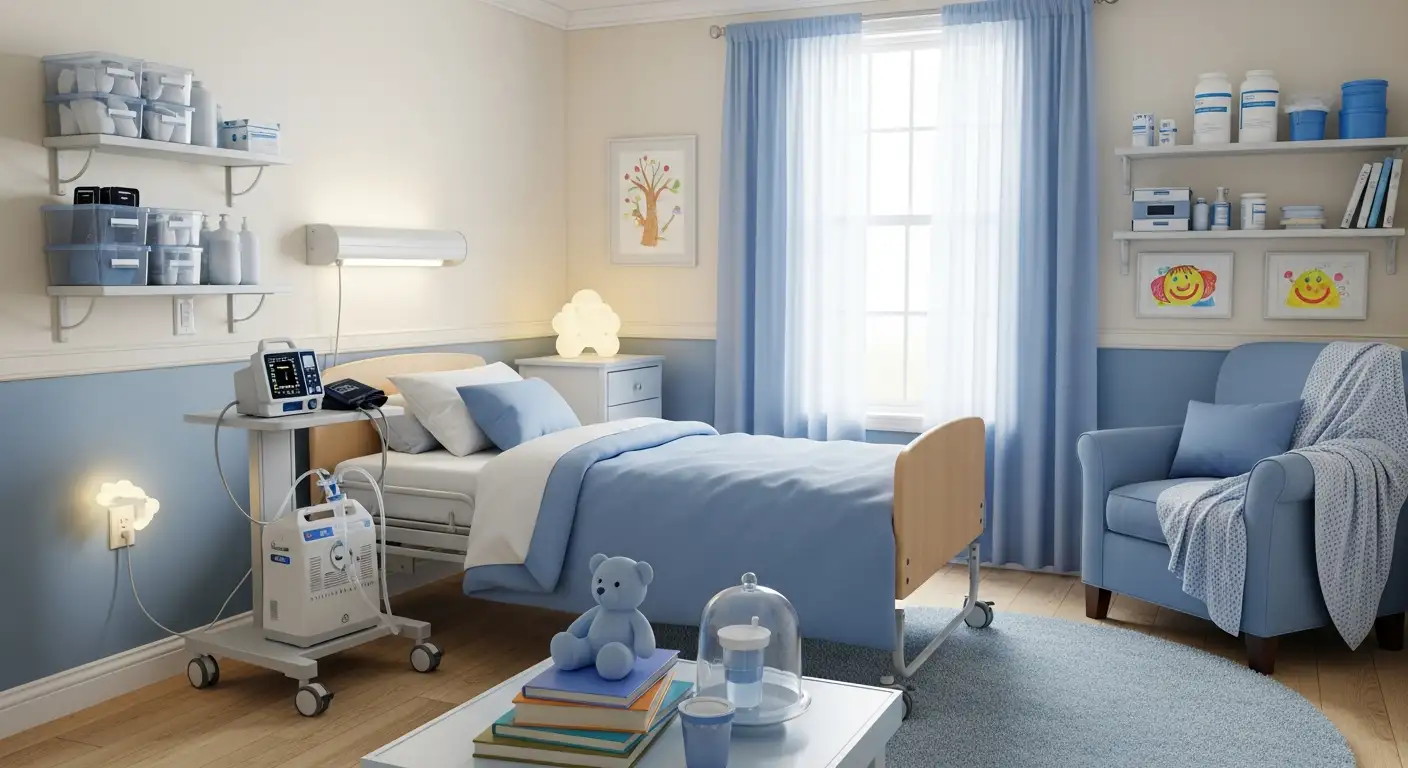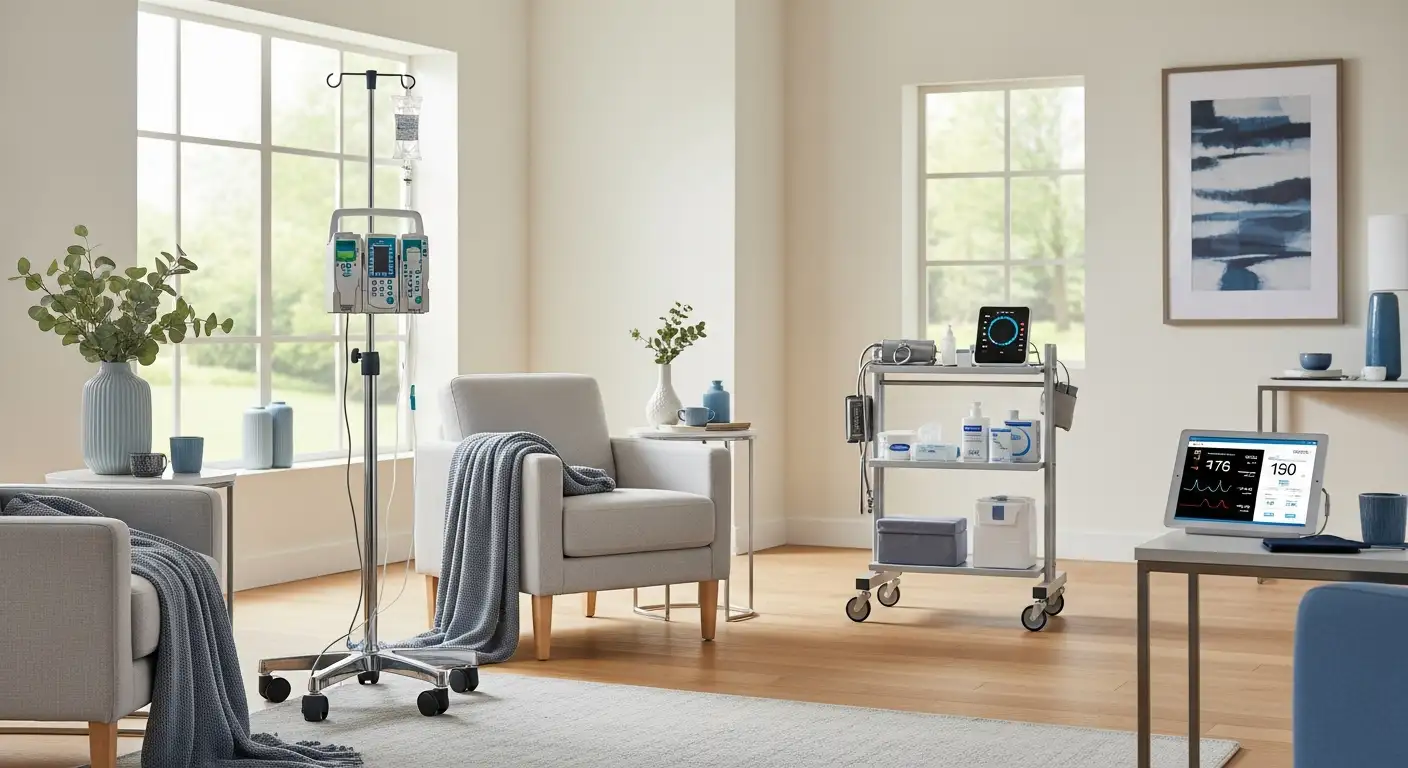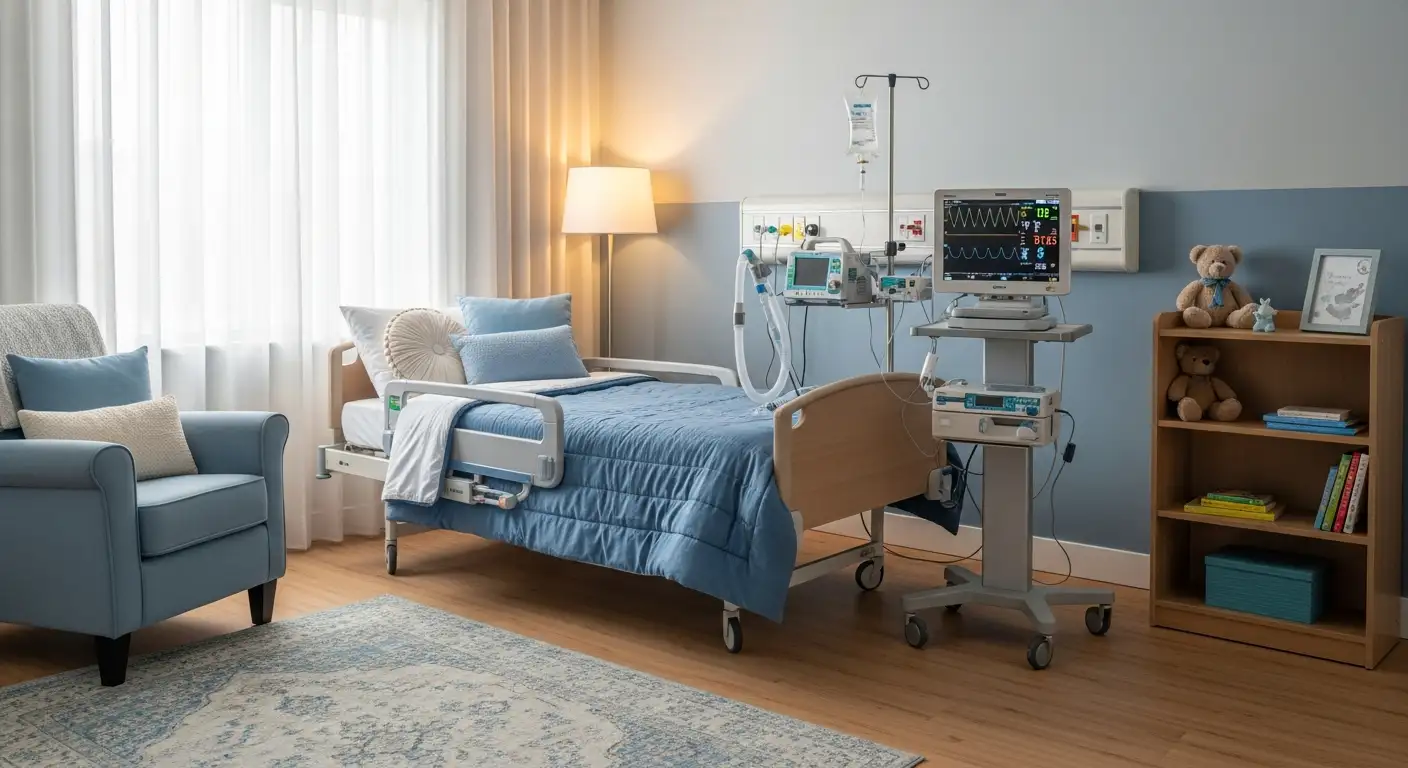Introduction to Pediatric Home Care for Developmental Disabilities
Pediatric home care plays a vital role in supporting children with developmental disabilities by providing personalized, comprehensive medical and therapeutic services within the comfort of their homes. This approach not only promotes physical, emotional, and developmental well-being but also strengthens familial bonds and enhances quality of life. As families navigate complex health needs, pediatric home care offers tailored interventions designed to foster independence, improve developmental milestones, and ensure continuity of care, all in a familiar setting that reduces anxiety and facilitates healing.
Supporting Children with Developmental Disabilities at Home

How does pediatric home care support children with developmental disabilities?
Pediatric home care offers essential support for children with developmental disabilities right in their own homes. This personalized approach provides tailored medical assistance, therapeutic interventions, and everyday support to promote growth and independence. Certified caregivers, such as registered nurses and home health aides, assist with daily activities like bathing, dressing, and meal preparation, helping children build skills and stay comfortable.
Special programs like the Care at Home Medicaid Waiver extend additional services such as respite care, home modifications, and case management. These programs are designed to meet complex medical needs, ensuring continuous, coordinated care that reduces hospital visits and enhances overall well-being. By working closely with healthcare providers and understanding funding options, pediatric home care guarantees a comprehensive support system.
This environment-focused care helps children thrive by allowing them to receive consistent, compassionate support in the familiarity of their home. The result is improved participation in daily activities, better health management, and a higher quality of life for both children and their families.
What services are typically offered through pediatric home health care for children with developmental disabilities?
Children with developmental disabilities benefit from a broad spectrum of medical and therapeutic services delivered at home. These include skilled nursing assessments, medication administration, and ongoing health monitoring. Therapeutic services like physical, occupational, and speech therapy are integral to helping children develop essential skills and improve mobility.
Beyond basic therapies, services can include specialized treatments such as oncology care, palliative and hospice services, infusion therapy, and neonatal or respiratory management. These interventions are tailored to each child's specific needs and are coordinated with the child’s healthcare team to ensure safety and effectiveness.
Home health providers frequently examine the child's environment, recommending modifications that increase safety and support development. These adjustments may involve installing assistive devices or creating a space conducive to therapeutic activities. This holistic approach fosters better participation, emotional comfort, and physical functioning.
Overall, pediatric home health care for children with developmental disabilities not only improves health outcomes but also empowers families by providing education, emotional support, and resources to manage complex health conditions at home.
| Service Type | Description | Typical Conditions Addressed |
|---|---|---|
| Nursing services | Health assessments, medication management, wound care | Chronic illnesses, post-surgical recovery |
| Physical therapy | Mobility improvement, strength and coordination training | Cerebral palsy, developmental delays |
| Occupational therapy | Daily living skills, fine motor coordination | Autism spectrum disorder, sensory processing |
| Speech therapy | Language development, feeding support | Speech delays, feeding difficulties |
| Specialized treatments | Oncology, infusion, palliative, neonatal care | Cancer, genetic disorders, premature infants |
| Home adaptations | Safety modifications, assistive device recommendations | Any child requiring environmental support |
This comprehensive range of services highlights how pediatric home care is instrumental in supporting children with developmental disabilities. It emphasizes a family-centered, collaborative approach to foster health, development, and emotional well-being.
Promoting Development and Well-Being Through Therapeutic Interventions

How does pediatric home care promote the development and well-being of children with developmental challenges?
Pediatric home care plays an important role in supporting children with developmental delays or disabilities by offering personalized and ongoing medical and therapeutic services in a familiar, comfortable environment. This setting helps reduce stress and anxiety, which are common in clinical or hospital settings, thereby fostering better engagement and progress.
Therapies such as physical, occupational, and speech therapy are integrated into daily routines, making them more natural and less disruptive. These therapies aim to improve core skills, promote independence, and support developmental milestones. For instance, physical therapy enhances mobility and strength, while occupational therapy helps children develop daily living skills like dressing and feeding. Speech therapy focuses on communication abilities, essential for social interaction and learning.
Early intervention is a vital aspect of pediatric home care. Starting therapeutic services early can significantly influence a child's developmental trajectory, helping them achieve greater independence and improve their quality of life. Tailored support plans are developed based on each child's specific needs, ensuring effective therapy and progress monitoring.
Family involvement is a crucial element of the care process. Parent and caregiver training empowers families to reinforce therapy goals and monitor progress at home. This collaborative approach creates a consistent and supportive environment that promotes skill development and emotional security.
Additionally, home-based therapies contribute to better health outcomes, such as reducing hospital readmissions and exposure to infections. The flexible scheduling of therapy sessions allows treatments to be seamlessly incorporated into daily life, minimizing disruption.
Overall, pediatric home care fosters holistic growth—physical, emotional, and developmental—by addressing complex needs directly in the child's everyday environment. This approach not only supports current development but also builds a strong foundation for future skills, resilience, and well-being.
| Therapy Type | Focus Area | Benefits |
|---|---|---|
| Physical Therapy | Mobility and strength | Improves movement, balance, and physical independence |
| Occupational Therapy | Daily living skills | Enhances self-care, fine motor skills, and adaptability |
| Speech Therapy | Communication skills | Facilitates language development and social interaction |
Utilizing these therapies in the home creates a naturalistic setting that encourages children to generalize skills across various environments, ultimately promoting better developmental outcomes and emotional stability.
Benefits of Pediatric Home Care for Families and Children
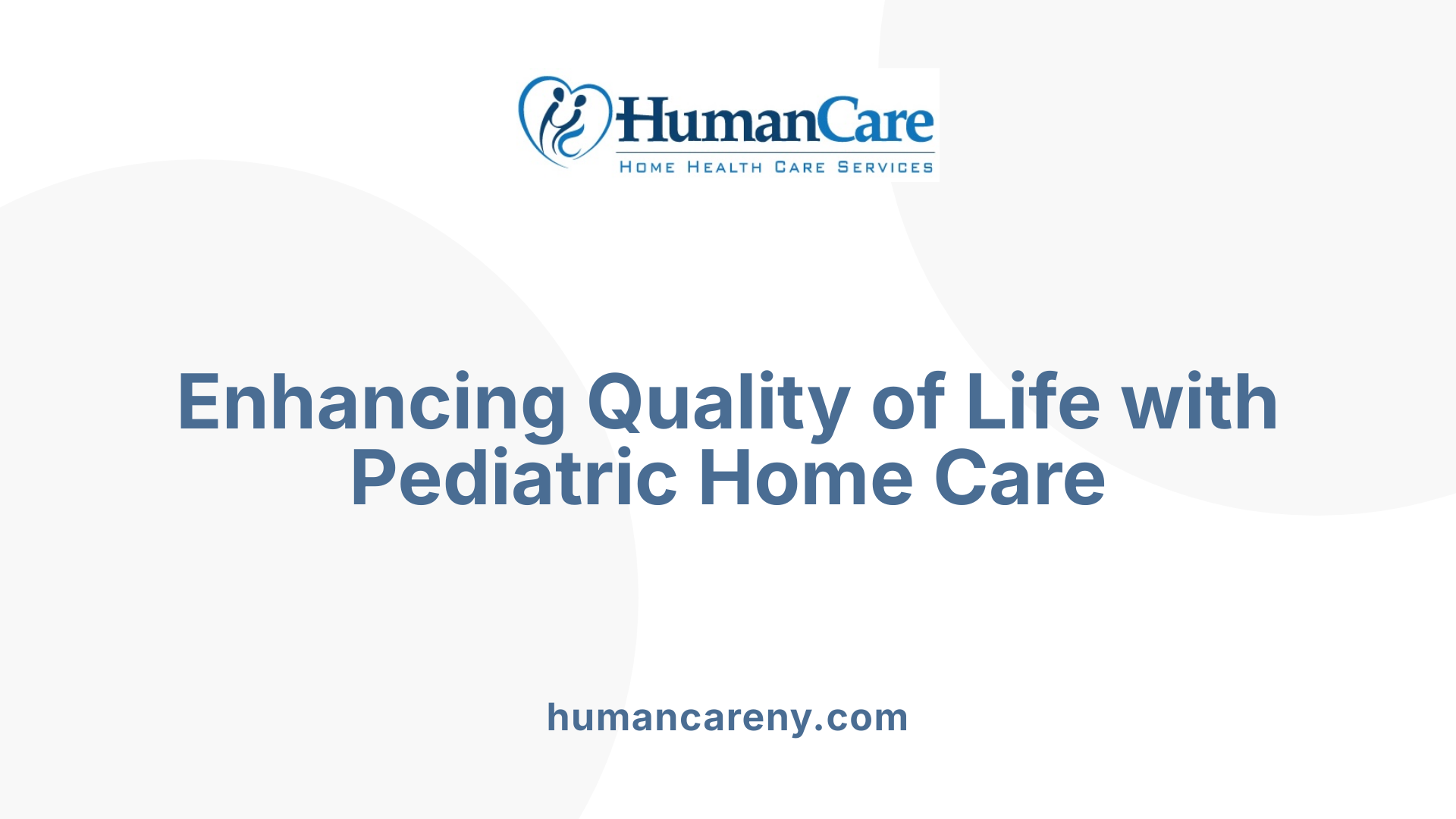
What are the benefits of pediatric home care programs for children with developmental disabilities?
Pediatric home care programs provide a wide array of advantages for children with developmental disabilities. These services are carefully personalized, ensuring that each child's medical and developmental needs are addressed through coordinated care plans. Such plans might include physical, occupational, and speech therapies, nutritional support, and assistive technology—all delivered within the familiar surroundings of home.
Being cared for in a comfortable, natural environment helps children feel more secure and relaxed, which can promote better participation in therapeutic activities and reduce the anxiety often associated with medical settings. This setting also lowers the risk of infections and helps the child develop a sense of normalcy.
Families benefit significantly as well. Home care reduces the need for frequent hospital visits, offering respite and emotional relief for caregivers. It empowers families through education, involving them actively in daily caregiving and health management. Consistent, flexible services foster trustful relationships between children and caregivers, which is crucial for ongoing progress.
Furthermore, high-quality home care supports a smoother transition into adulthood, fostering independence and functional improvements. Overall, the personalized attention and comfortable environment promote healthier, happier outcomes for children with developmental disabilities and their families.
What outcomes are associated with receiving pediatric home care for children with developmental disabilities?
The positive outcomes linked with pediatric home care are numerous. Children typically experience improved developmental progress, gaining better control over their abilities and skills. They often show increased stability in their health status, experiencing fewer hospitalizations and emergencies.
Participation in daily activities, both at home and in community settings like schools and social groups, tends to improve significantly. These services also contribute to cost reductions in healthcare, minimizing unnecessary hospital stays and emergency visits.
Families report less physical and mental health stress, largely thanks to the support and education they receive, which enhances their capacity to manage their child's condition effectively. Satisfaction levels among caregivers are generally higher when they see tangible improvements in their child's well-being.
However, it is important to acknowledge that limited access to high-quality pediatric home health care can increase caregiver burden and financial strain. Ensuring adequate and equitable service delivery is crucial to maximizing benefits.
In the broad spectrum, well-coordinated pediatric home health services support better device management, prevent complications, and enable children to participate fully in their communities, fostering a more inclusive and supportive environment.
| Aspect | Benefits | Additional Details |
|---|---|---|
| Development | Improved developmental milestones | Therapies tailored to individual needs, fostering independence |
| Health | Increased health stability | Reduces hospital stays and emergency visits |
| Family | Reduced caregiver stress | Education and emotional support, empowerment |
| Cost | Decreased healthcare expenses | Less reliance on acute care services |
| Community | Greater participation | Integration into school and social activities |
This comprehensive approach demonstrates how pediatric home care not only addresses medical needs but also promotes overall participation, emotional well-being, and family quality of life, forming a vital component of holistic care for children with developmental disabilities.
Addressing Medical and Complex Needs in Pediatric Home Care
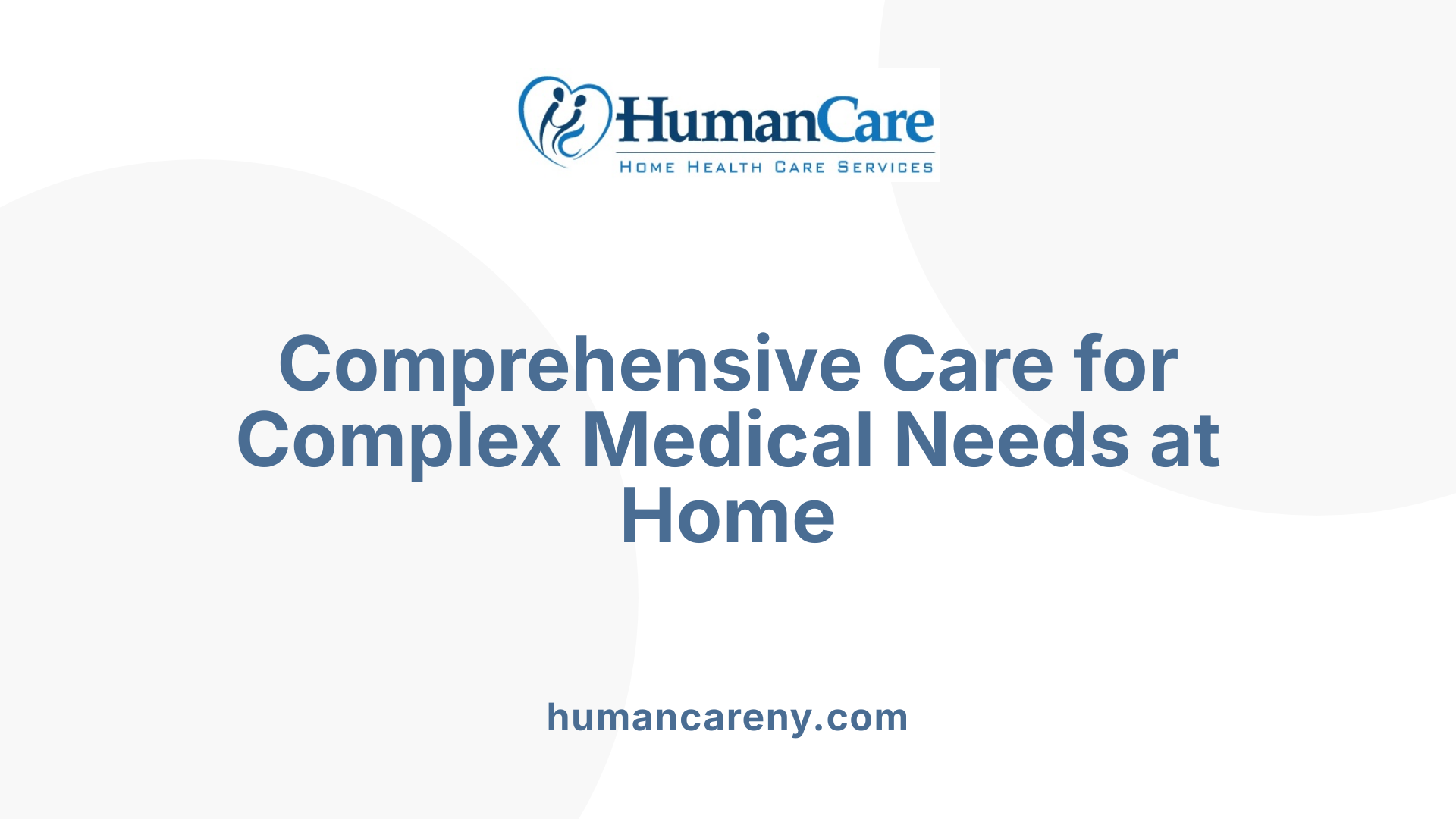
What are the common conditions treated with pediatric home health care?
Pediatric home health care is vital for children with a range of medical needs and complex health conditions. Commonly treated conditions include complications from prematurity, cardiac diseases such as congenital heart defects, chronic pulmonary or respiratory illnesses like asthma, and neurodegenerative diseases. Children with genetic disorders or developmental delays also benefit from ongoing, specialized management.
Support for children facing serious injuries or recovering from surgery is another essential aspect of home health care. This includes administering medications, wound care, and monitoring vital signs regularly to prevent complications and promote healing.
In addition, children undergoing cancer treatments receive pain management, nutritional support, and emotional care within their home environment to reduce hospital visits. Children with chronic respiratory conditions—like cystic fibrosis or severe asthma—are supported through nebulizer treatments, symptom monitoring, and allergy management.
Support is often extended to children with complex needs such as neurodegenerative diseases, genetic disorders, and other intricate health conditions. These children require continuous management by specialized nursing and medical teams that work closely with families. Medical equipment—including oxygen tanks, ventilators, mobility aids, and hospital beds—is commonly used to provide necessary respiratory support and mobility assistance.
By offering comprehensive, consistent care in their familiar environment, children with complex medical needs can maintain stability, promote recovery, and improve their overall quality of life. Tailored care plans ensure that each child's unique health requirements are met efficiently and compassionately.
| Condition Type | Common Interventions | Specific Equipment or Support |
|---|---|---|
| Prematurity | Respiratory support, feeding assistance | Oxygen, feeding tubes, monitors |
| Cardiac issues | Post-surgical care, medication management | Heart monitors, medication supplies |
| Respiratory illnesses | Nebulizer treatments, symptom monitoring | Ventilators, nebulizers |
| Neurodegenerative & genetic disorders | Ongoing management, therapy | Specialized medical devices |
| Post-surgical recovery | Wound care, physical therapy | Hospital beds, mobility aids |
| Chronic illnesses | Long-term medication, symptom control | Medical supplies, monitoring devices |
How does pediatric home care support children with neurodegenerative diseases, genetic disorders, and other complex conditions?
Children with neurodegenerative diseases, genetic disorders, and other intricate health issues require regular, highly specialized medical attention. Home care teams provide tailored interventions, including medication administration, physical therapy, and behavioral support, all integrated into their daily routines.
These children benefit from strategies aimed at maintaining the highest possible quality of life. Equipment such as ventilators, feeding tubes, and mobility aids are often part of the care plan. Caregivers and medical professionals work together to monitor health status, adjust treatments, and prevent complications.
Family education and training empower parents and caregivers to manage complex conditions confidently, handle emergencies, and support emotional well-being. The natural setting of the home allows for therapies to be delivered in a familiar, comfortable environment, often leading to better outcomes.
Providing continuous, comprehensive support at home helps reduce hospitalizations and offers comfort and stability for children facing lifelong health challenges. Overall, pediatric home care offers a holistic approach, addressing medical, developmental, and emotional needs seamlessly.
Supporting Children with Complex Conditions:
- Maintenance of vital functions using specialized equipment
- Consistent medication and therapy schedules
- Family-centered training and support
- Collaboration with multidisciplinary teams for personalized care
This approach ensures that children with neurodegenerative and genetic conditions receive the attentive, ongoing care they need to thrive within their family and community environment.
Family Support and Systemic Collaboration

How does pediatric home care support families and promote systemic collaboration?
Pediatric home care plays a crucial role in empowering families by offering caregiver training and education. This support enables parents and guardians to better manage their child's daily health needs and medical treatments, fostering confidence and competence. Through ongoing education, families learn to recognize symptoms, administer medications, and use medical equipment correctly, which reduces stress and increases safety.
In addition to caregiver support, pediatric home care services facilitate access to a wide range of community resources. These resources include developmental programs, social services, educational support, and financial assistance, all of which contribute to the child's overall well-being and integration into community life.
Legal frameworks like the Americans with Disabilities Act (ADA) and the Olmstead decision advocate strongly for children’s right to receive care in community-based settings. They promote the inclusion of children with disabilities in everyday environments, supporting their independence and dignity.
By fostering collaboration among healthcare providers, families, schools, and community agencies, pediatric home care ensures comprehensive and coordinated support. Care plans are developed collaboratively, tailored to each child's unique needs, and regularly evaluated for effectiveness. This teamwork ensures that children with developmental disabilities have access to consistent, seamless care that promotes their growth, learning, and social participation.
What are some barriers to high-quality pediatric home health care?
Despite its benefits, pediatric home health care faces several challenges. Inadequate funding limits access to specialized equipment and qualified providers, often delaying or restricting necessary services. Workforce shortages, especially in certain geographic areas, make it difficult to place trained professionals where they are needed most.
Delayed access to essential medical devices or supplies can compromise safety and health outcomes for vulnerable children. Furthermore, safety concerns in the home environment—such as hazards or unprepared caregivers—can impede service quality.
The fragmentation of healthcare services adds complexity, making it challenging to coordinate care effectively across different providers and agencies. These barriers can hinder children’s progress and burden families with logistical and emotional stress.
Addressing these issues requires systemic improvements, including better funding models, workforce training initiatives, integrated service delivery systems, and enhanced data sharing. These steps are vital to ensuring that all children requiring pediatric home health care receive timely, comprehensive, and equitable services.
| Aspect | Challenges | Potential Solutions |
|---|---|---|
| Funding | Insufficient resources for equipment and staff | Increase government and private funding |
| Workforce | Shortage of trained providers | Expand training programs, provide incentives |
| Accessibility | Delays in equipment and service deployment | Streamline procurement and referral processes |
| Service Integration | Fragmentation of care | Develop unified care coordination systems |
| Safety | Home environment risks | Conduct safety assessments and caregiver training |
Supporting pediatric home health care through systemic collaboration ensures children with disabilities can thrive in familiar surroundings, surrounded by a network of dedicated professionals, family, and community resources.
Fostering Empowerment and Independence at Home
In summary, pediatric home care is an essential component in supporting children with developmental disabilities, offering personalized medical, therapeutic, and emotional care within a familiar environment. These services promote developmental progress, enhance emotional well-being, and empower families to take an active role in their child's growth. Overcoming systemic barriers and expanding access to comprehensive home-based care can lead to improved outcomes, greater independence, and a higher quality of life for children and their families. As such, pediatric home care remains a cornerstone of holistic, family-centered pediatric health services.
References
- At-Home Pediatric Care: Managing Children with Special ...
- Home Health Care Research for Children With Disability and ...
- How Pediatric Home Health Care Supports Child ...
- Pediatric Home Health Care — What You Need to Know
- Common Pediatric Conditions Treated with Home Care ...
- Benefits of Pediatric Home Care for Medically Fragile ...
- 10 Reasons Why Pediatric Home Care Is Important for ...
- Caregiver and Provider Experiences of Home Healthcare ...

